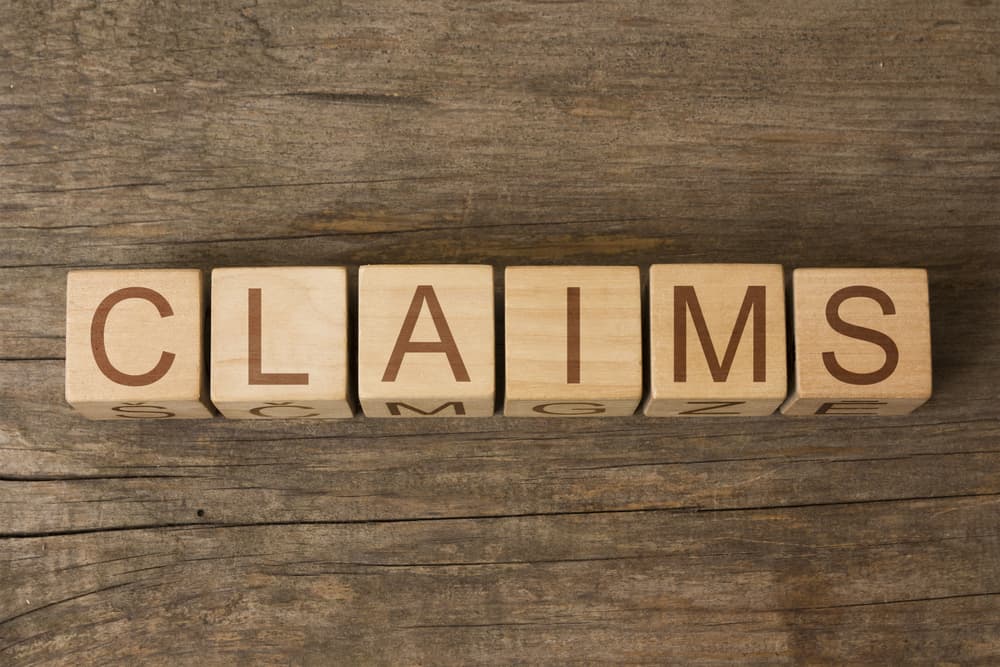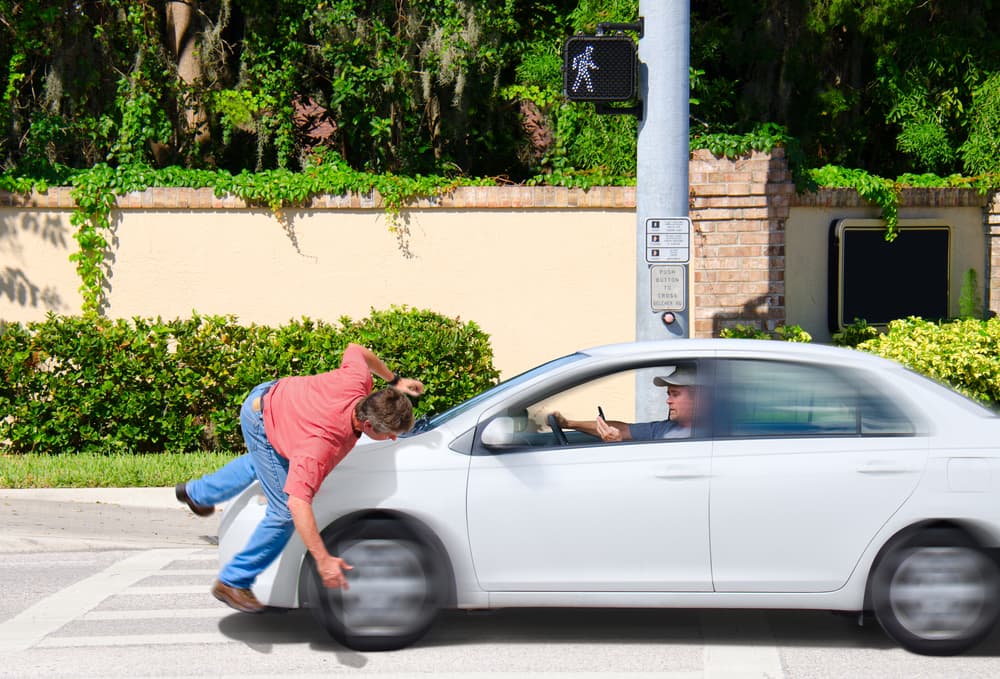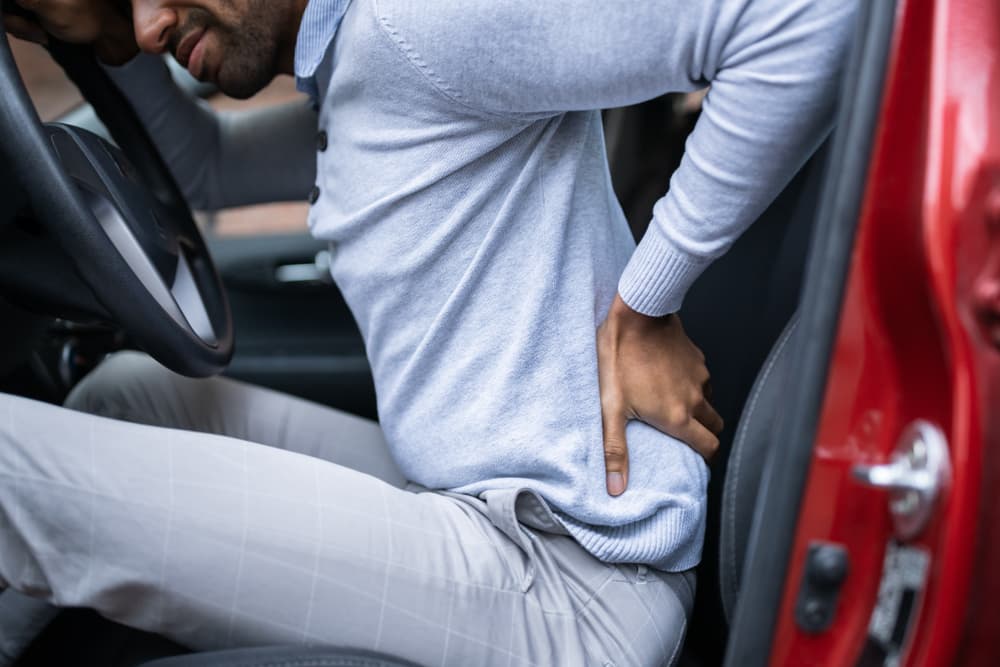For the average driver, car accidents do not occur all that frequently. While accidents happen daily across the United States, they often sound like something that happens to someone else, rather than something that happens to you.
When a car accident does happen to you, you may have questions about what you need to do next and how you need to protect yourself. What steps should you take? How can you decrease the odds that you will face substantial financial penalties and hardships for an accident caused by someone else’s negligence—or at least increase the odds that you will recover the compensation you deserve?
Our car accident lawyers have made a list of steps to show you what to do after a car accident to help protect yourself.
Navigating the aftermath of a car crash can be overwhelming, but our experienced car accident lawyers are here to help you through every step of the claims process. When an accident occurs, it’s crucial to document key details, such as your insurance claim driver’s license number, to ensure a smooth experience.
Our team will work diligently with your insurance agent to determine fault and secure the actual cash value for your damages. We understand the stress of repair costs and can connect you with reputable emergency services to get you back on the road. Trust us to handle the complexities of your case, so you can focus on recovering and moving forward.
1. Report the accident to your local police department.
The driver whose negligence caused the accident may have a lot of reasons why you should not call the police and report the accident. The driver might worry about insurance increases. A teen driver could fear telling her parents. A drunk driver might even face criminal repercussions as a result of the accident. Regardless of what excuses the driver gives, however, always report the crash to your local police department.
Remain at the scene of the accident until the police arrive. However, you may leave the scene of the accident if you need to seek immediate medical attention, you need to leave to contact the police for some reason, or you do not feel safe at the scene: for example, if the driver that caused your accident shows signs of increasing rage or instability.
If you do have to leave the scene of the accident for any reason, let 911 or local dispatch know that you plan to leave, why, and where the police can find you when they arrive.
2. Document the scene of the accident if it does not put you in danger.
Take photos of:
- The at fault’s drivers license and insurance information;
- The other car’s license plate;
- A photo that captures the other car’s make and model;
- The damage to both vehicles;
- Your injuries; and
- Any features of the scene that may have contributed to the accident.
The more information you collect at the scene of the accident, the easier it can prove to recreate the scene of the accident later if liability will be contested. However, you should never jeopardize your health or safety to collect that information. If you feel unsafe for any reason, including fast-moving traffic nearby, you should remain in a safe location while you wait for the police to arrive.
3. Do not accept the blame for the accident or brush off the other driver’s liability while talking to the police.
Many people want to help alleviate the liable driver’s guilt after an accident. Sometimes, you may simply want to say something like “Oh, it’s okay.” Other times, however, people will inadvertently accept some liability for the accident, even while talking to the police. They may make statements like “Oh, I never saw him coming, either,” or “Oh, I didn’t stop fast enough.”
Those seemingly simple statements do not offer a polite acceptance of the accident or how it happened. Rather, they could cause you to inadvertently accept part of the liability for the accident. Ultimately, you could end up missing out on some of the compensation you deserve.
Instead, offer the police a calm, factual report of what you observed before and during the accident. Provide evidence, if you have it, including dashcam footage. Discuss the actual conditions that led to the accident. Avoid accepting even partial liability, if possible.
The police report will help determine who bears liability for the accident. You want it to have as much accurate information as possible about your accident to make it easier for you to pursue compensation later.
4. Visit a local hospital.
You may not think you suffered serious injuries in your car accident. However, unless you had only a minor fender bender that barely caused cosmetic damage to either vehicle, you should always pursue medical treatment in order for a physician to properly examine you. If you think you sustained relatively minor injuries, you may choose to visit a local urgent care center rather than going to the hospital. Do not, however, simply walk away from the accident scene or assume that you will “deal with it later.”
Many serious injuries may not show up immediately after the accident. For example, you might assume that if you did not lose consciousness after a blow to the head, you probably do not have a traumatic brain injury. However, as time goes on, you may feel increasingly disoriented or even experience nausea or vertigo. You may later discover that you did sustain a traumatic brain injury—and you may have challenges from even a minor traumatic brain injury that last for years after the initial accident.
Likewise, many victims of serious injuries have discovered that they sustained more severe injury than they thought in the immediate aftermath of the accident. Broken bones and even spinal cord injuries can show up hours or days after the initial incident, especially if you write the pain off to general soreness because of the accident. Later, you may discover that you have very serious injuries that should have received immediate medical care.
Seeking medical care helps you get the diagnosis you need and the treatment that will increase your odds of making a full recovery. However, it also serves a vital purpose for your car accident claim: it can help establish exactly when your injuries took place.
Sometimes, the victims of serious accidents try to claim compensation for their injuries only to have the insurance company deny it on the basis that the injury could have occurred at another time. If you do not have proof of when your injuries occurred, you may have a much harder time seeking the compensation you deserve for those injuries.
5. Get in touch with an experienced car accident attorney as soon as you can.
Do you need a car accident attorney to help you manage your car accident claim? Often, working with an experienced car accident lawyer can make a huge difference in your ability to recover the compensation you deserve for the injuries and property damage you sustained in a car accident. In general, you need an attorney if you fall into one of these categories.
You suffered serious injuries in the car accident.
The insurance company may start by issuing a low settlement offer, argue that you caused the accident, or try to prove that your injuries occurred at another time. Insurance companies may even try to prove that your injuries do not cause the limitations you claim or that you did not need the treatments you outlined in your claim as part of your recovery.
A lawyer can help you navigate those challenges from the beginning, putting you in a better position to negotiate for the compensation you really deserve.
The insurance company disputes fault in the accident.
Sometimes, the insurance company may try to dispute fault in the accident, claiming that you, rather than the other driver, caused the accident. A car accident lawyer can help collect evidence related to your accident and establish that the other driver’s negligence caused the accident by offering evidence that the other individual chose to text and drive, to ignore the rules of the road, or to drive recklessly.
More than one party may bear liability for the accident.
Sometimes, more than one party may share liability for a serious car accident—and not just when your accident involves multiple vehicles. In some cases, you may find that more than one party shares liability for your accident even when it involves only one other vehicle.
For example, if your accident involved a commercial driver, a delivery driver, or a driver on the clock at the time of the accident, in some cases, the driver’s employer may share liability for the accident. If a mechanical problem caused or contributed to the accident, you may also need a more in-depth investigation to determine whether the manufacturer or a mechanic that recently worked on the damaged vehicle shares liability for the accident.
An attorney can help investigate all the factors that may have contributed to the accident and, in many cases, identify those additional parties who may share liability.
You have a hard time getting the insurance company to pay out the compensation you deserve.
Sometimes, insurance companies may try to slow down the car accident claim process. They may try to delay approval on repairs to your vehicle or even refuse to pay for the full repairs you know you need. If you use your PIP insurance to cover the immediate cost of some of your medical bills after the accident, you may have a hard time getting the insurance company to pay for those bills.
When should you contact an attorney? Any time you have trouble with an insurance company that refuses to pay out the compensation the plan designates.
Note that once you contact an attorney, the attorney can take over dealing with both, or all, insurance companies involved in the accident. For example, if you choose to use your own full-coverage insurance to cover the cost of repairs to your vehicle and get you back on the road faster, your attorney can interact with your insurance company to determine the best overall course of action, including the best way to get your vehicle repaired.
Your attorney can also notify the insurance company about your accident and your need to use your PIP coverage.
6. Follow the recommendations of your medical care team to increase your odds of making a full recovery.
Your medical care team will put together a plan designed to improve your odds of making a recovery as much as possible. That care plan may include a variety of factors, from specific procedures you need to have to the specific type of therapy you need to go through. It may also include restrictions on your activities while you recover.
For example, if you break your ankle in a car accident, your doctor may recommend not bearing weight on the injured limb for a few weeks after the accident. Your doctor may give instructions regarding when you can go back to work, when you can get back to light activities, and when you can resume your usual activities.
Follow those instructions as carefully as possible. If your doctor instructs you not to do something, do not make excuses and try to engage in that behavior anyway, even if you feel as though you can handle it.
Frequently, patients will inadvertently make their injuries worse, which may lengthen recovery time. If you worsen your injuries because you ignored your doctor’s instructions, the insurance company that covers the liable driver may not pay out for any further medical treatments or limitations.
Dealing with the aftermath of a car accident claim can feel difficult and, at times, frustrating. Having an experienced car accident attorney on your side can make a huge difference in your ability to recover compensation. Do not try to handle your claim on your own. Instead, contact a car accident attorney as soon as possible.
For more information regarding the legal process around your case, review our locations to find a personal injury lawyer near you. We assist with claims in:



